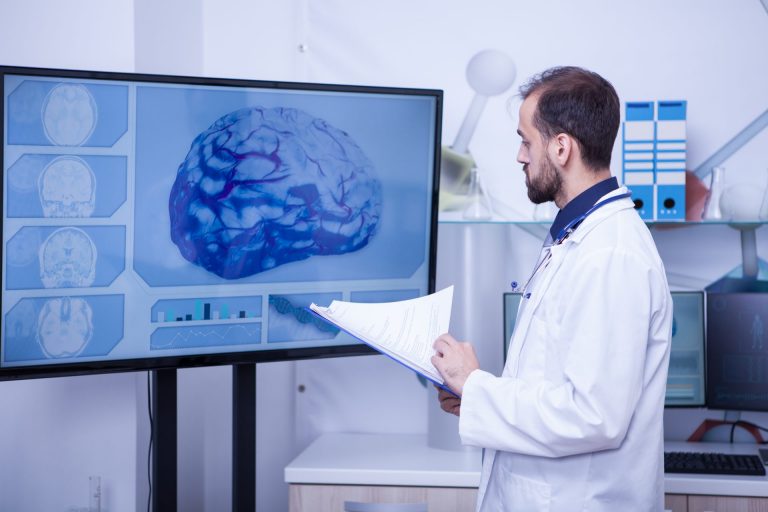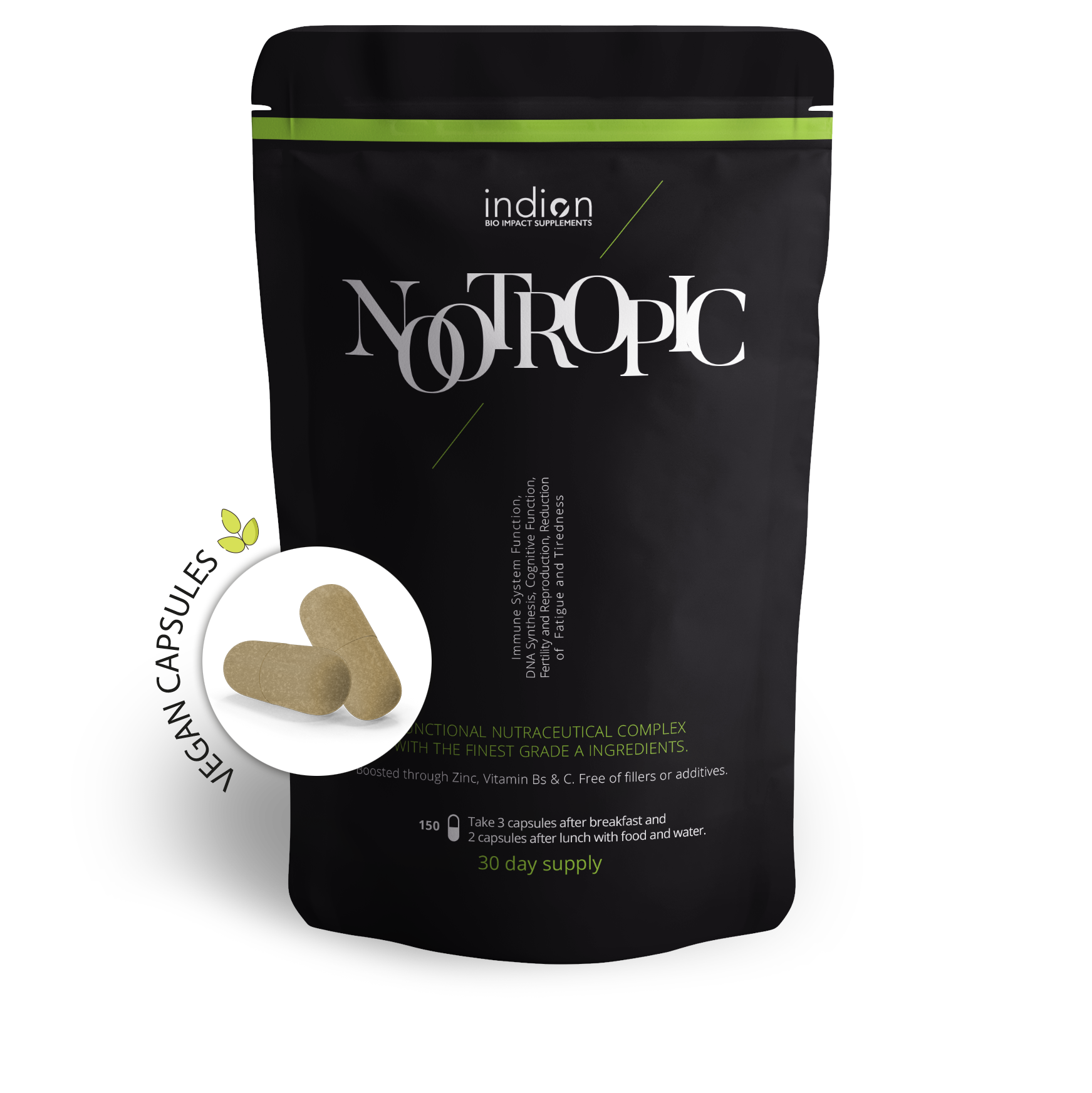Unlocking the Secrets of a Supercharged Mind: Strategies for Better Memory and Cognitive Performance
The Importance of Memory and Cognitive Performance in Daily Life
Memory and cognitive performance are two critical components of our daily lives that enable us to function effectively. Without memory, it would be impossible to acquire knowledge, make decisions, or carry out everyday tasks.
Likewise, without cognitive performance, we wouldn’t be able to think critically or solve problems efficiently. Memory is essential for learning and retaining new information.
Whether you’re studying for a test, learning a new skill, or simply trying to remember a phone number or address, your ability to recall information is vital. Similarly, cognitive performance is necessary for processing information effectively and making sound decisions based on that information.
In today’s fast-paced world, where we are constantly bombarded with new information from various sources such as emails, social media feeds, news articles etc., the ability to filter out irrelevant data and focus on what’s important requires optimal cognitive performance. Therefore it is crucial that we maintain good memory function and cognitive skills throughout our lives.
A Brief Overview of What will be Covered in the Article
The purpose of this article is to provide an in-depth look at techniques and strategies that can help improve memory function and boost cognitive performance. We will discuss the different types of memories stored in the brain, what affects memory formation and retention including age-related changes. We’ll explore various methods like mnemonic devices utilized both for improving memorization skills as well as visualization techniques which can enhance recall We’ll also examine how certain foods can support brain health while others have negative effects on our brain activity levels.
Exercise plays a significant role in maintaining optimal brain health. We’ll explore how physical exercise impacts cognition positively besides its other benefits like keeping up cardiovascular health.
,we’ll touch upon nootropics (cognitive enhancers) their effect on our mental abilities alongside potential risks associated with using them regularly. ,this article will provide readers with a comprehensive overview of the latest research on memory and cognitive performance, along with practical tips and techniques for improving these essential aspects of our everyday lives.
Understanding Memory
How Memory Works in the Brain
Memory is a complex process involving different parts of the brain. One of the key structures involved in memory formation and storage is the hippocampus, which is located in the temporal lobe.
When new information enters our brain, it first goes through our sensory memory, which holds information for a few seconds or less. If we pay attention to this information, it moves to our short-term memory, which can hold information for up to 30 seconds.
After this period of time, if we don’t reinforce that piece of information, it will be forgotten. However, if we repeatedly retrieve that piece of information from our short-term memory and reinforce it through repetition or other techniques (which will be covered later), it can move into our long-term memory.
Once in long-term memory, memories can become more stable and resistant to forgetting. Even though memories are stored throughout the brain (not just the hippocampus), research shows that this structure plays an important role in consolidating memories from short-term to long-term storage.
Different Types of Memory (Short-Term, Long-Term, Sensory)
There are different types of memory systems that exist within our brains: sensory memory (also known as immediate or iconic memory), short-term or working memory and long-term explicit and implicit memories. Sensory Memory: This type holds brief impressions of sensations experienced by any sense modality for approximately one quarter of a second after exposure. Short-Term Memory: Short term-memory allows us to store small amounts of information temporarily without forgetting them instantly afterwards; such as remembering someone’s phone number while you dial.
Long-Term Explicit & Implicit Memories: Long-term memories are stored outside your immediate awareness but can still be accessed with effort when needed; these may take months or years before they decay beyond recovery . Explicit memory consists of memories that require conscious effort to recall, such as what you ate for breakfast or where you parked your car.
Implicit memory, on the other hand, refers to memories that don’t require conscious effort to retrieve but are instead recalled subconsciously. For example, knowing how to ride a bike without having to consciously think about each step of the process.
Factors That Affect Memory (Age, Stress, Sleep)
Age: As we age our cognitive abilities will begin to decline and this can affect our memory capability. Older adults often find it challenging to remember information because their capacity for recall decreases with aging.
Stress: Exposure to stress hormones like cortisol can have negative effects on different areas of your brain including those involved in memory storage & processing. This could cause difficulty recalling and retaining information.
Sleep: Sleep is an essential part of maintaining good health and functionality in daily life because it’s a time when our brains consolidate and reinforce new information we’ve learned during the day. Inadequate sleep or poor sleep quality can lead to problems with memory consolidation which in turn affects cognitive performance during waking hours.
Techniques to Improve Memory
Mnemonic devices and memory aids
One of the most effective ways to enhance memory is by using mnemonic devices, also known as memory aids. These are techniques that help individuals remember information by connecting it to something else that they already know. For example, using an acronym such as HOMES to remember the Great Lakes (Huron, Ontario, Michigan, Erie, Superior).
Another example is the method of loci, which involves picturing a familiar place and associating each item you need to remember with a specific location in that place. With practice, these methods can greatly improve recall ability.
Visualization techniques
Visualization involves creating mental images in your mind’s eye to help remember information. This technique is based on the idea that our brains are better at remembering visual information than verbal or written information.
For example, when trying to memorize a list of items such as a grocery list, one might picture each item in their head along with its location in the store. Visualization techniques can also be used for more abstract concepts – for instance visualizing concepts such as “justice” or “love”, making them easier to remember.
Repetition and practice
Repetition is one of the most basic ways of improving memory retention. The more times we hear or see something new, the more likely it is that we will retain it long-term. It’s important however not just repeat things mindlessly: instead try spacing out repetitions over time so that you don’t forget what you’ve learned – this will reinforce memories over time and help consolidate them more effectively.
Mindfulness and meditation
Meditation has been shown to improve cognitive function and reduce stress levels – both factors which can impact memory retention abilities negatively. Mindfulness exercises are designed specifically for cultivating present moment awareness, which can help reduce stress and anxiety levels, and also provide a way to focus effectively on studying or memorization efforts. Practicing mindfulness techniques before attempting to memorize new information can greatly enhance memory retention.
Meditation can also be helpful for calming the mind and improving focus. It’s a good idea to incorporate both mindfulness and meditation into your daily routine, perhaps by setting aside specific times during the day for these practices.
NOOTROPIC BLEND
Mental peak performance on demand
The NOOTROPIC BLEND is a complex that helps you to get "in the zone", by boosting concentration, attentiveness, and responsiveness through the utilization of some of the most powerful nootropic ingredients available.
- Mind booster for more creativity
- Promotes concentration and focus
- For sustained performance
- Antioxidants protect the brain
- 2 capsules daily, 30 minutes before work, competition, exam or training
Nutrition for Brain Health
Foods that Support Brain Function
The brain is a complex organ that requires a variety of nutrients to function optimally. Some key nutrients that support brain health include omega-3 fatty acids, antioxidants, and B vitamins.
Omega-3 fatty acids are found in fatty fish such as salmon and sardines, as well as in flaxseed and walnuts. These essential fatty acids play a critical role in brain development and function, and have been linked to improved memory and cognitive performance.
Antioxidants are another important nutrient for brain health. They protect the brain from oxidative stress caused by free radicals, which can damage cells and contribute to cognitive decline.
Foods rich in antioxidants include berries, dark chocolate, pecans, artichokes, and kidney beans. Eating a diet rich in these foods can help protect the brain from age-related decline.
The Impact of Hydration on Cognitive Performance
Drinking enough water is essential for overall health, but it’s also important for our brains. Dehydration can lead to fatigue, confusion, and difficulty concentrating – all of which can negatively impact cognitive performance. When we’re dehydrated, our brains have to work harder to perform even simple tasks.
Research has shown that even mild dehydration can impair cognitive performance in areas such as attention span, short-term memory recall, reaction time, and decision making. To stay hydrated throughout the day, aim to drink at least 8 cups (64 ounces) of water per day – more if you’re physically active or live in a hot climate.
Brain-Boosting Foods
In addition to specific nutrients like omega-3s and antioxidants that support overall brain health, there are also certain foods that have been shown to improve cognitive performance specifically. One example is blueberries – these tasty little berries are packed with antioxidants and have been linked to improved memory and learning.
Other brain-boosting foods include dark chocolate (which contains flavonoids that can improve blood flow to the brain), avocados (which are high in healthy fats and fiber), and eggs (which are rich in choline, a nutrient that’s important for brain development and function). By incorporating these foods into your diet, you can help support your brain health and potentially improve your cognitive performance.
Exercise for Brain Health
Regular exercise is not only essential for physical health but also critical in maintaining optimal brain function. Exercise increases blood flow to the brain, which provides necessary nutrients and oxygen to the brain cells, promoting their growth and survival. Studies have shown that regular exercise can help reduce the risk of cognitive decline, improve memory, increase attention span and enhance overall cognitive performance.
The link between physical exercise and cognitive function
Research studies have consistently demonstrated that aerobic exercises are particularly beneficial for improving cognitive function. Aerobic exercises such as running, brisk walking, swimming or cycling elevate heart rate, pumping more oxygen-rich blood into the brain which helps promote neuroplasticity –the ability of neurons to form new connections. Aerobic exercises stimulate the production of a protein called BDNF (brain-derived neurotrophic factor) that is essential for learning and memory by activating neurotransmitters responsible for creating new neuron connections in the hippocampus -a part of the brain responsible for long-term memory.
Types of exercise that benefit the brain
Incorporating a variety of different types of exercises into your routine can help provide more comprehensive benefits to your brain health. Resistance training (weightlifting) is an excellent way to maintain healthy bones and muscles while also promoting healthy cognitive aging.
Resistance training stimulates growth factors in neurons responsible for increased synaptic plasticity-which means it promotes new connections between neurons. Yoga has been found to improve attention span and reduce stress levels with its combination of physical movements along with focused breathing techniques that aid relaxation response.
Dance classes can challenge coordination skills while simultaneously elevating mood through social interaction -both factors associated with improved mental capacity outcomes. Exercising at any age provides numerous benefits to both physical and mental health.
Regular aerobic exercises such as running or swimming promote BDNF production essential for learning and memory formation, while resistance training and yoga can promote increased synaptic plasticity and reduce stress levels respectively. Dancing can be both a fun and challenging way to improve cognitive function through coordination challenges and social interaction.
Sleep and Cognitive Performance
The importance of sleep for memory consolidation
Sleep is an essential component of overall health and wellbeing, and it plays a critical role in cognitive performance. When we sleep, our brains are actively working to consolidate memories and process information that we have learned throughout the day.
Sleep helps to strengthen neural connections in the brain, which improves our ability to remember details, think critically, and solve problems. Research has shown that sleep deprivation can have a significant impact on cognitive function.
Lack of sleep can impair attention, working memory, decision-making abilities, and reaction times. In fact, studies have found that even a single night of inadequate sleep can lead to decreased performance on cognitive tasks.
Tips for improving sleep quality
If you’re looking to improve your memory and cognitive performance, it’s crucial to prioritize quality sleep. Here are some tips for getting better rest at night:
– Stick to a consistent schedule: Try to go to bed and wake up at the same time every day. – Create a relaxing bedtime routine: Establishing a calming routine before bed can help signal your body that it’s time for rest.
– Avoid electronics before bed: The blue light emitted from electronic devices can suppress melatonin production in the brain, making it harder to fall asleep. – Make sure your sleeping environment is comfortable: Your bedroom should be cool, dark, and quiet.
– Consider mindfulness practices such as meditation or deep breathing exercises which can help calm racing thoughts. By prioritizing quality sleep as part of your daily routine you will start seeing improvements in your ability to remember details make decisions faster while enhancing overall brain function.
Nootropics and Cognitive Enhancers
An overview of popular nootropics and their effects on cognitive performance
Nootropics, also known as smart drugs, are supplements or drugs that have the potential to enhance cognitive function. While some people use nootropics to improve their memory, focus, and creativity, others use them to increase productivity or stay awake for longer periods. Some popular nootropics include caffeine, modafinil, piracetam, and phenylpiracetam.
Caffeine is a stimulant that many people consume daily in coffee or tea. Research has shown that caffeine can improve attention span and reaction time.
However, excessive caffeine consumption can lead to jitteriness and anxiety. Modafinil is a prescription drug used to treat narcolepsy and other sleep disorders.
It has been shown to improve alertness, focus, memory retention and recall in healthy individuals as well. However it requires a prescription and may cause certain side effects like headaches.
Piracetam is one of the oldest nootropic compounds currently available in the market. It primarily increases blood flow to the brain without causing any significant side-effects when taken within recommended dosages.
Risks associated with using cognitive enhancers
While some nootropics may have positive effects on cognitive performance with minimal risks at recommended doses but there can be serious health concerns associated with higher doses of certain substances. One important consideration when taking any kind of supplement is potential interactions between different substances.
Additionally certain high-doses of these supplements could potentially lead to addiction or dependency issues if not carefully moderated. It is crucial for users considering cognitive enhancers or smart drugs should be aware that less research has gone into long-term usage than more conventional medications; therefore there may be unanticipated side-effects pertaining prolonged use of these products,
Conclusion
While nootropics and cognitive enhancers have their potential benefits, it is important to note that they can carry risks for long-term health. Users should consult a physician before taking any new supplement or drug, and carefully monitor their usage to avoid negative side effects. At the end of the day, a healthy lifestyle including proper nutrition, regular exercise and sufficient sleep can go a long way in improving memory and cognitive function with little to no risk.
Conclusion
Throughout our lives, memory and cognitive performance play a critical role in how we navigate the world. From work to personal relationships to hobbies and interests, our ability to remember information and think critically impacts every aspect of our lives. Fortunately, there are many ways we can work to maintain good brain health throughout our lives.
To start, it’s important to understand the basics of memory and cognitive function. This includes the different types of memory, factors that impact memory formation and retention, and techniques for improving memory.
By understanding how our brains work, we can better target specific areas for improvement. In addition to mental exercises and techniques, nutrition also plays a critical role in brain health.
Eating a diet rich in omega-3 fatty acids and antioxidants can help support cognitive function over time. And don’t forget about hydration!
Adequate water intake is essential for proper brain function. Beyond nutrition, exercise is also an important aspect of maintaining good brain health.
Both physical exercise and mental exercise (such as learning new things or playing games) can benefit cognitive function over time. It’s worth discussing the use of nootropics or other cognitive enhancers.
While these substances may provide short-term benefits for some individuals, there are often risks associated with their use. It’s important to weigh the potential benefits against the risks before deciding whether or not to use them.
All in all, taking steps to maintain good memory and cognitive performance throughout life is well worth the effort. By understanding how our brains work and taking proactive steps towards better brain health, we can improve overall quality of life now and into the future.
What our customers say:
“Since I integrated NOOTROPIC BLEND into my daily routine, I feel more mentally alert and can concentrate longer. It has helped me work more efficiently and improve my memory. A great product that I would recommend to anyone who wants to boost their cognitive performance!”
Laura M., Projectmanager
“NOOTROPIC BLEND has been a real gamechanger for me. As an entrepreneur, I am constantly looking for ways to boost my mental performance, and this product has not disappointed. Since I have been taking it regularly, I have noticed a significant increase in my creativity and problem solving skills. I highly recommend it!”
Markus S., Entrepreneur
“As a student, I often have difficulty concentrating on my learning materials for a long time. With NOOTROPIC BLEND, I was able to noticeably improve my concentration and receptiveness. Now I learn faster and retain what I have learned better in my memory. I am very satisfied with this product and will continue to use it!”
Julia K., Student
NOOTROPIC BLEND
Mental peak performance on demand
The NOOTROPIC BLEND is a complex that helps you to get "in the zone", by boosting concentration, attentiveness, and responsiveness through the utilization of some of the most powerful nootropic ingredients available.
- Mind booster for more creativity
- Promotes concentration and focus
- For sustained performance
- Antioxidants protect the brain
- 2 capsules daily, 30 minutes before work, competition, exam or training
You might also be interested in:
Nootropic Blend
Nootropics for Motivation
Ever felt like you’re stuck in a rut, unable to muster the energy or motivation [...]
Nootropic Blend
Nootropic Blend: best focus supplement for gaming
Discover the best nootropic blend for gaming! Our article explores the benefits, ingredients and factors [...]
Nootropic Blend
Can Smart Drugs Improve Cognitive Function?
This article explores the potential benefits and drawbacks of using smart drugs for cognitive enhancement. [...]
Nootropic Blend
Neuroenhancement: brain doping?
Many people are looking for ways to increase their cognitive abilities and reach their full [...]
Nootropic Blend
Combat lack of concentration
Discover now the natural formula for more focus and productivity in everyday life. Increase concentration [...]
Nootropic Blend
Clearing the Brain Fog: How Nootropics can Enhance Cognitive Function and Boost Productivity
Discover how nootropics can help you tackle brain fog. Learn about the best types of [...]
Nootropic Blend
Navigating the World of Brain Boosting Nootropics: From Racetams to Rhodiola
Unlock your cognitive potential with brain-boosting nootropics. Learn about different types, benefits, and safe use [...]
Nootropic Blend
How ashwagandha effect muscles
Discover the effects of ashwagandha on muscle health. Learn how this adaptogenic herb can enhance [...]







